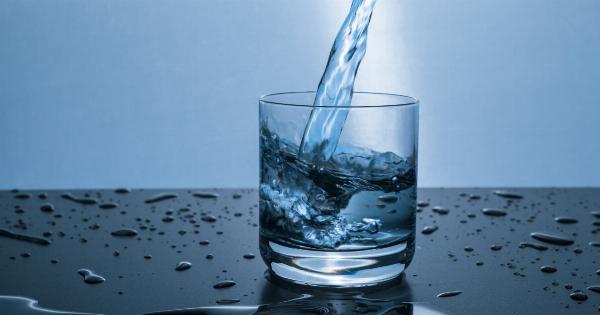Water is essential for life, and it is recommended that adults drink at least 8 cups (64 ounces) of water daily to maintain proper hydration. However, recent studies have shown that water consumption may also be linked to body mass index (BMI).
What is Body Mass Index (BMI)?
BMI is a measure of body fat based on height and weight. It is calculated by dividing a person’s weight in kilograms by their height in meters squared.
A BMI of 18.5 to 24.9 is considered healthy, while a BMI of 25 to 29.9 is considered overweight, and a BMI over 30 is considered obese.
How Does Water Consumption Affect BMI?
Studies have shown that increasing water intake can help people lose weight and lower their BMI. This is because water has zero calories and can help to increase feelings of fullness, leading to a decrease in overall calorie intake.
In addition, drinking water can also increase thermogenesis, which is the body’s ability to burn calories at rest. This means that drinking water can boost metabolism and help the body to burn more calories throughout the day.
Water Intake and Weight Loss
Several studies have found a correlation between increased water intake and weight loss. In one study, overweight women who drank more water lost more weight than those who drank less water.
Another study found that drinking water before meals led to a decrease in calorie intake and a drop in body weight over a 12-week period.
Interestingly, these studies also found that drinking sparkling water or water with added flavors had the same weight loss benefits as plain water.
This means that if you don’t like the taste of plain water, you can still reap the benefits of increased water intake by trying flavored or sparkling water instead.
Water Intake and BMI in Children and Adolescents
The link between water consumption and BMI is not only applicable to adults but also to children and adolescents.
One study found that children who drank more water had a lower BMI and were less likely to be overweight, while another study found that increasing water intake in obese adolescents led to a decrease in BMI over a 6-month period.
How to Increase Water Intake
If you’re looking to increase your water intake to help lower your BMI, there are several tips you can try:.
- Carry a reusable water bottle with you throughout the day
- Add sliced fruit or cucumbers to your water to add flavor
- Drink a glass of water before each meal
- Replace sugary drinks with water or flavored sparkling water
- Drink a glass of water after each alcoholic beverage
By making these small changes, you can increase your daily water intake and potentially lower your BMI.
Conclusion
Overall, there is a link between water consumption and BMI, with increased water intake being associated with lower BMI and weight loss.
By increasing your water intake and making healthier beverage choices, you can potentially lower your BMI and improve your overall health.



























